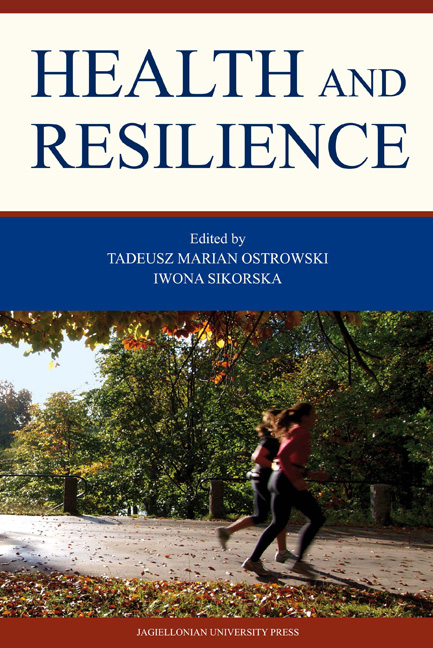Introduction
Published online by Cambridge University Press: 05 December 2014
Summary
The concept of resilience belongs to the category of positive terms, which are very inspiring to theoretical reflection and empirical studies in psychology. It has importance for the overall psychological theory and, in particular, for the theory of emotions and motivation, personality theory and the researches on psychological stress. The concept, furthermore, can be significantly referred to existential, social, and ecological psychology. Resilience is not only one of the basic categories in positive psychology, but also the one that has applications to psychology of development, psychology of education, family psychology as well as to health psychology and psycho-neuro-immunology. The significance of this concept for clinical and rehabilitation psychology can finally be added. The broadness of the area in which research on resilience is conducted, depicts very well the importance of this concept and its versatility.
The authors of the monography faced questions about the determinants of resilience, its mechanisms and consequences. Monography consists of three parts, namely I. Social and methodological contexts of resilience, II. Resilience in development, III. Resilience and disease.
The first one focuses on social and methodological contexts of resilience. There are four chapters in this part, all of them consider mainly theoretical questions connected with health, illness, healing, recover and well-being in the mental and bodily field.
- Type
- Chapter
- Information
- Health and Resilience , pp. 7 - 10Publisher: Jagiellonian University PressPrint publication year: 2014



